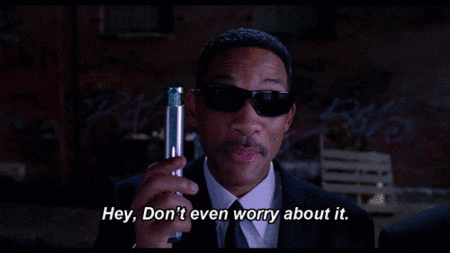Post-Reality Part 2: Unmasked by Crisis
When self-medicating the 'what the fuck is wrong with me' voices goes wrong -- and why moving on quietly is not an option
More from f*ck i love you
the fily (audio)files audio essays | Spotify | Apple Podcasts
f*ck i loved that the pod | Spotify | Apple Podcasts
Now You See Me, Now You Don’t
Late last year, my mind unraveled itself in public.
Mostly online.
There were some surreal offline moments too, of course. Most I wish I could forget and all I wish I could take back.
In particular, the big saviour energy dumped into a meeting of senior bureaucrats six weeks into a consulting gig I quit three days later.
Or, picture needing a verbal password to enter my apartment when arriving to advise me on “whistleblowing strategy”. Because naturally, one requires sage counsel when tasked with preventing systemic collapse.
In short, my internal chaos bled indelibly, if sometimes invisibly, all over my external life.
Unlike my online activity, very few of you saw those parts. In some ways, I benefited from our fractured and disconnected lives. In others, I didn’t. There were no witnesses to the totality that would have clearly signalled my need for support.
Some of that compartmentalization was on purpose. I lived an episode like this 20 years earlier and had taken notes. I was determined, to the best of my compromised ability, to minimize any classic red flags that could lead to psychiatric hospitalization.
Perhaps I was a bit too successful at that effort. A grippy sock vacation, I did not take.
Longer episodes leave more damage, though. Hospitalization is what I most intensely guarded against but probably most needed.
Which, note to Future Self: proactively defending your right-mindedness is crimson-coloured, founded concern.
Psycho? Delulu? Unhinged? Go to the Gym, You’ll be Fine
Now, at this point you might ask: if I was convincing enough to those who know me best, and no one saw everything, why narrate the details now?
In this economy?
Because let’s be honest: we’ve only just barely started accepting depression and anxiety as legitimate mental health conditions rather than evidence of self-inflicted defectiveness.
The ‘just eat healthy, go to the gym, stop whining, stay hard, and you’ll be fine’ crowd is still here, growing right alongside David Goggins' 13M strong Instagram following.

Anything beyond barely palatable diagnoses gets caricatured, marginalized and discriminated against.
Most people haven’t seen more exotic forms of mental illness like psychosis and mania up close. With less than 3% of the population affected, they remain hidden, stigmatized, fodder for amateur TikTok psychologists.
Just look at the pervasive use of psycho as a slur, or everything and everyone suddenly being delulu and unhinged. You’ll quickly understand why people like me typically stay quiet at scale.
Because when we’re not the butt of jokes and side-eyed suspicions, we’re treading the waters of shame and poverty. Or just straight up not here to tell the story. Too many of us don’t survive long enough to. Our suicide rates aren’t just higher — they’re staggering.
Given all of that, why recount any of this in technicolor detail? Why remind or inform people on purpose?
Because I don’t have any other choice.
Neuralyzers do not exist.
I cannot ask you to just look right here real quick.

Inconvenient, Uncomfortable Truths
A bunch of people saw enough to leave big questions lingering. The kind of questions that turn into whispers of doubt in my trustworthiness and fabrications about what really happened.
I’d rather you hear the right story from me than the one at the other end of a broken game of telephone.
Then there's the inconvenient truth that brains like mine are as inescapable as the skin we’re in.
They cannot be edited into compliance.
Pretending otherwise costs me more than your judgment ever could.
Some call this Masking. It’s what happens when we contort ourselves into something more acceptable, more hireable, more dateable, more tolerable. It's a corrosive stress that leads almost invariably to disintegration and disease of body and mind.
In my case, a lifetime of perfectionistic pretending primed conditions for multiple sclerosis to develop. I was diagnosed in 2019. The links between MS and chronic stress are well established, both in its development and its episodic onset.
While I shared that diagnosis openly, I’ve mostly minimized and footnoted the nine other stress-driven disorders I accumulated before MS via this same relentless striving.
Being the poster girl for chronic and mental illness never made it onto any of my vision boards, if you can believe it.
I am not interested in being defined by that particular list of acronyms. I’d prefer ones like MBA or PhD, either of which I might have by now had my brain been properly supported and unconditionally accepted much earlier.
What matters is this: there’s a straight line from the lifelong effort of masking to the emergence of all of these illnesses, physical and mental alike. Significant bodies of research back this despite slow adoption in current clinical practice and cultural understanding.
What the Fuck is Wrong With me?
When I shared my MS diagnosis on Facebook, I thought I’d begun to unburden myself from the performance, even if at that point I still did not fully understand its origins.
It would take another few years to discover the missing puzzle piece called neurodivergence, arguably the root of my lifelong attempts to quiet the incessant "what the fuck is wrong with me" voices with perfectionist contortions and exceptional achievements.
Nonetheless, undoing ~36 years of performative camouflage takes more than disclosure. It takes supports I didn’t know I needed — like medications to modulate norepinephrine and dopamine, for example.
Brains are very cunning about getting what they need, though. We often call this unconscious seeking, self-medicating. I’ve long gravitated toward cannabis for this purpose, despite warnings it probably wasn’t that safe for me after my early 20s episode.
I mostly heeded that caution until perimenopause entered the chat.
The strain of continued striving against this backdrop intensified instability in my mood, energy and general wellbeing. As my hormones started their midlife backflips and cliff jumps, my life got messier. I sought reprieve in the one substance that historically made it all better.
This is how cannabis crept back into my life. First socially, and then daily, kinda like that self-sabotaging situationship you let slide back into your DMs.
Some things hurt too good.
The relief, while it lasted, was a near miracle. And if some is good, then more must be better.
Right?
Wrong when you have a very sensitive, very vulnerable brain that’s already destabilized.
Too Much, Too Fast, & Too High a Price
There’s a reason trauma gets shorthanded as too much, too fast. Eventually cure became poison. I overwhelmed my system so significantly it had no choice but to sort of reluctantly attempt to defragment itself.
Reality slipped sideways and next I knew, I was vulnerability-bombing bureaucrats and monitoring for a security tail in the rearview on spontaneous trips to Tofino.
We may jokingly call it my reality vacation, but most people return from vacation rested.
I came back to wreckage.
I’d medicated my mask and the self underneath into a million little pieces.
10/10 do not recommend this particular method of unmasking, by the way. It was not a gentle revealing, even if I remained gentle throughout.
And so this…all of this…is why I can’t just move on quietly.
The literal and metaphorical debts I’ve incurred trying to conform to an antagonistic society, are incalculable.
The mask is irreparably shattered and I cannot afford a new one.
Plus, you already saw me naked.
There’s nothing left to lose.
P.S.: I fucking love you. Thank you for reading.
P.P.S.: Last night I read this devastating but necessary essay about a family that lost Mila, their vibrant 18 year old daughter to suicide following a cannabis-induced psychosis. I will write explicitly about cannabis in the future. Its relationship to mental health is a complex topic that needs more visibility.
Perhaps surprisingly, I remain pro-cannabis — with caveats. Like, its not for me. And, if its going to be for you, I really suggest understanding the risks. For example: It has highest rate of conversion from acute to chronic psychosis of all drugs, including meth. There is a lengthy resource section at the end of the essay.
Lots more for another day. In the meantime, please read about Mila.
If this piece lit up your brain and heart at the same time, sharing, liking, commenting or subscribing is Creator Speak for “fuck i love you, too”.
And let’s be honest this is still capitalism and this economy is shit (again) so I don’t use paywalls. If you’re in a good position and excited to make a one-time or monthly contribution, I’d be super grateful.
I’ll still fucking love you either way.






This was so good -- and complex...I think I need to read it again. My best friend's daughter (34 now) spent her late HS and College years attempting to mask and self-medicate her myriad mental health issues with cannabis and other random drugs. She's been "on the verge" more times than I'm sure I'm aware of.
She was 30 before she was able to tolerate the process of assessment and diagnoses and the arduous path to identifying which meds cocktail would help more than hinder her mental health stabilization. By the grace of god, she white knuckled her way through a nursing degree, which had always been her dream, and now feels stronger having a clearer sense of her purpose. And perhaps also a greater appreciation for what she overcame to get there.
And your writing itself is both raw and beautiful - I admire your expression of emotional depth!
This means a lot to me, Jenn. My biggest motivation after my own processing is to write pieces that others can find themselves (or loved ones) in. In particular at the intersection of neurodivergence and women's mental health. I have a new piece coming out on Wednesday about how hormones play into all this. It's all so under-discussed and poorly understood. And can quite literally ruin lives for not getting the appropriate care.
I honestly believe if I'd been properly medicated for ADHD from my teens a significant majority of the most traumatic things that have happened in my life -- in particular these episodes -- wouldn't have. I can barely breathe thinking about what that means at scale when we know that 1/4 - 1/8 people have neurosensitivities but *less than half* know that they do. So many people, especially women, are, like your friend's daughter, just white knuckling it through their own lives.
Humans don't come with owner's manuals. If no one every explains that your normal is 'not normal' you can end up doing life on hard mode for no good reason other than your sensitivity hasn't been properly named and supported. It's just... heartbreaking.
I wish all the beautiful things for your friend's daughter. Especially that she finds the supports that work for her.